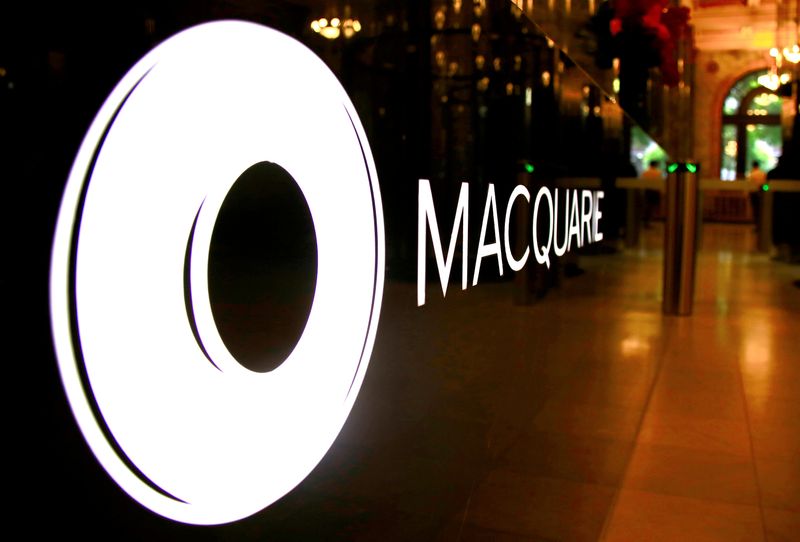By Praveen Menon and Roushni Nair
(Reuters) -Australia's Macquarie Group (OTC:MQBKY) on Friday forecast higher short-term income from its lucrative commodities trading business as price volatility and increased hedging boosted the company's annual profit to a record high.
The Ukraine war and unpredictable weather in North America have turned Macquarie's oil, gas and power trading unit into a strong profit-making segment, even if prices fall, due to elevated risk management levels and improved trading.
The Sydney-based firm's Commodities and Global Markets (CGM) segment posted net profit of about A$6 billion ($4 billion), 54% higher than last year, as more customers hedged against volatile energy markets.
In the short term, the company expects consistent contributions from client and trading activity in the financial markets platform.
Shares of Macquarie were down 1.36%, compared to a broader market decline of about 0.2%.
"Record result, CGM THE standout but question marks on its sustainability," UBS analyst John Storey said in a note.
Earnings at Macquarie Capital, which runs capital raisings for other businesses, tumbled 47% as the unit logged lower fees due to bleak market activity.
Macquarie said in a statement that the earnings were primarily driven by a strong performance from its CGM’s businesses.
Chief Executive Shemara Wikramanayake said the company remained "cautious", adding that Macquarie's diversified global operation across annuity-style and markets-facing businesses set the stage for "superior performance" in the medium term.
The company's broader international business generated 71% of the group's profit.
The financial conglomerate's profit attributable for the year ended March 31 came in at A$5.18 billion, up from A$4.71 billion a year ago, and beating a Visible Alpha consensus estimate of A$4.96 bln.
It also bumped up its final dividend to A$4.50 per share from A$3.50 per share a year earlier.

Speaking at an investor briefing, Wikramanayake said the company was "very comfortably capitalised" with a group capital surplus of $A12.6 billion, up from $A10.7 billion in the previous financial year.
($1 = 1.4932 Australian dollars)